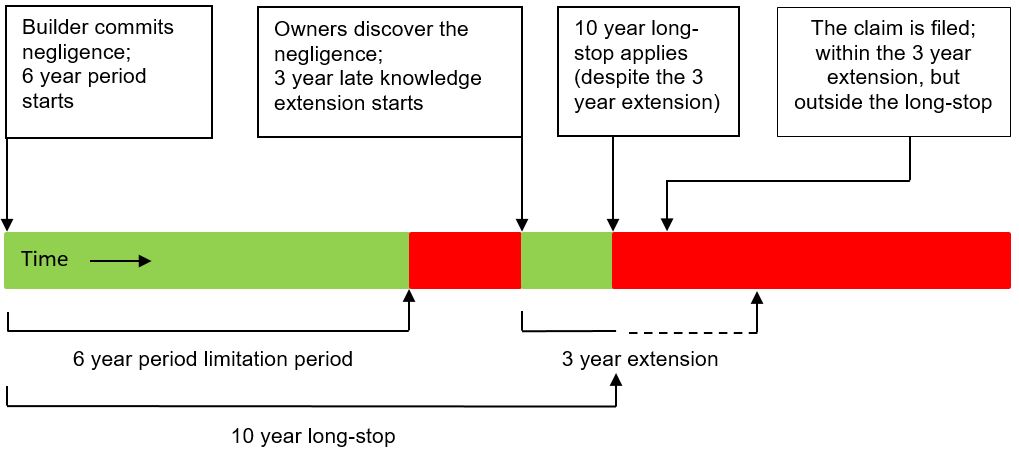Do you need assistance with a legal claim?
Set up an appointment with our legal experts today for further advice.
email Nathan
+64 9 8376844


14 September, 2021 | Nathan Tetzlaff
The purpose of limitation periods is to prevent a situation where somebody has a claim against them held over their head indefinitely. This also promotes the prompt application of justice.
Limitation periods apply to both criminal proceedings and civil proceedings. There are very few wrong-doings which do not have a limitation period. The most notable crime where there is no limitation period is murder.
In civil claims the obligation is on the wronged person to take steps to enforce their rights against the wrongdoer. The government does not typically get involved. It is important for people to know what limitation periods might apply, and how to avoid having these expire before you seek justice.
In a civil claim, the expiry of a limitation period is a defence if the claim is filed in court after the limitation period expires. Filing the claim within the limitation period is acceptable, even if the claim is not resolved before that period expires. Often, claims will be filed in court a week or even a day before the expiry of a limitation period just to prevent the loss of the claim. This can act as a strong incentive on a person to get around to pursuing their rights.
Some limitation periods may be extended in certain circumstances. The Limitation Act refers to a “late knowledge date”. For example, if a person was reasonably not aware that the wrongdoer had done the act, was not aware that the act had caused loss to them, or did not know who the wrongdoer was, then the late knowledge date provision may apply. This can extend the limitation period for a certain amount of time, although a long-stop may apply. The long-stop is a maximum limitation period, and even the late knowledge extension cannot extend the claim beyond the long-stop date.
There are quite a few different limitation periods for civil claims. The below is not an exhaustive list but gives you an indication of the types of limitation periods that exist.
For money claims (such as breach of contract or damages for negligent losses) the ordinary limitation period is 6 years from when the cause of action arose. This is usually, but not necessarily, the date that the person did the thing which cause the loss, such as breaching the contract. The late knowledge extension is 3 years, with a 15 year long-stop.
For a defamation claim the limitation period is much shorter. Defamation has a 2 year limitation from the time that the defamatory statements were made, with a 2 year possible late knowledge extension.
For recovery of goods or enforcement of a judgment the limitation period is 6 years from when the goods were taken, or the judgment was made.
In construction, the limitation period is 6 years with a possible late knowledge extension of 3 years. There is a reasonably short long-stop of 10 years.
Limitation periods have had a lot of impact in the construction industry. This is because a construction project may take several years, and it may be difficult to notice that construction has not been done properly until years after that. As a result of this, claims are often filed in Court at or near the expiry of the limitation period. Also, it may not be entirely clear when the limitation period started from.
Consider a situation where:
In that case the owners have filed the proceedings outside of the usual six-year limitation period. They would need to argue that the 3-year late knowledge extension applies to them and would have to show that they should not reasonably have discovered the builder’s negligence earlier.
However, the 10 year long-stop would be a problem for them. The owners might argue that they are within a 10 year period from when the building was completed, but the builder might argue that the 10 year period should start running from when he did the work. On a timeline where the green bar is when a claim can be filed, and the red bar is when it is outside the limitation period, the situation looks like this:

These issues have been discussed in various Court cases, and the current state of the law is that both the limitation period and long-stop start running at the point the liable person does the work, not from the point that the total project is completed. In this hypothetical case the owners may still have a claim against the council for issuing a building consent for a negligently constructed building, as the claim was filed within 10 years from the date that the council building consent was granted.
Limitation periods can have enormous significance and may not always be straightforward. If you think you have a legal claim, we recommend that you talk to us a soon as possible to avoid any risk of a limitation period expiring and your claim being out of time.
Complete the form below, and we will get back to you promptly, or contact Nathan Tetzlaff by email nathan.tetzlaff@smithpartners.co.nz.